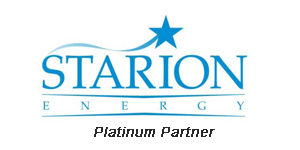
January 18, 2017 Legislative Preview: Nuclear Power, the Utility of the Future, and the Affordability of Electricity Are Considered Priorities This Session

On January 18, 2017, the Connecticut Power and Energy Society (CPES), the Connecticut Bar Association’s (CBA) Energy, Public Utility and Communications Section, and the Renewable Energy and Efficiency Business Association (REEBA) hosted the annual Connecticut General Assembly legislative preview with leadership from the Energy and Technology Committee. House Chair Lonnie Reed, Senate Co-Chair Paul Formica, and Ranking Member Laura Hoydick participated on behalf of the committee, sharing insights on the upcoming legislative session and where they plan to focus their efforts this year. The legislators informed attendees that the committee will hold an informational session on January 24, 2017 to hear from key stakeholders on some of the pressing issues facing the state.
 As for priorities, Senator Formica said that nuclear power and the viability of Millstone Nuclear Power Station will be a major area of focus this session. According to Formica, the 2,100 megawatt (MW) plant employs more than 1,000 employees and accounts for billions of dollars’ worth of economic benefits. Its carbon-free energy, he said, is an important part of the bridge to a renewable energy future.
As for priorities, Senator Formica said that nuclear power and the viability of Millstone Nuclear Power Station will be a major area of focus this session. According to Formica, the 2,100 megawatt (MW) plant employs more than 1,000 employees and accounts for billions of dollars’ worth of economic benefits. Its carbon-free energy, he said, is an important part of the bridge to a renewable energy future.  Addressing the changes affecting the traditional electric utility business model (dubbed “Utility 2.0”) and the affordability of electricity are also considered priorities this session. Representative Reed also spoke of plans to examine Connecticut’s energy “ecosystem” to determine where renewable resources and distributed forms of electricity can be better sited throughout the state.
Addressing the changes affecting the traditional electric utility business model (dubbed “Utility 2.0”) and the affordability of electricity are also considered priorities this session. Representative Reed also spoke of plans to examine Connecticut’s energy “ecosystem” to determine where renewable resources and distributed forms of electricity can be better sited throughout the state.
 Finally, the committee members all stressed the importance of working together and forming partnerships to advance the interests of Connecticut. They noted that solving the state’s budgetary issues and advancing a business-friendly atmosphere were important ways to grow jobs and attract investment in the state. According to the state’s Office of Fiscal Analysis, Connecticut faces an estimated $1.4 billion budget deficit for the 2017-2018 fiscal year.
Finally, the committee members all stressed the importance of working together and forming partnerships to advance the interests of Connecticut. They noted that solving the state’s budgetary issues and advancing a business-friendly atmosphere were important ways to grow jobs and attract investment in the state. According to the state’s Office of Fiscal Analysis, Connecticut faces an estimated $1.4 billion budget deficit for the 2017-2018 fiscal year.
| Thank You to Our Sponsors! | |
|---|---|
 |  |
